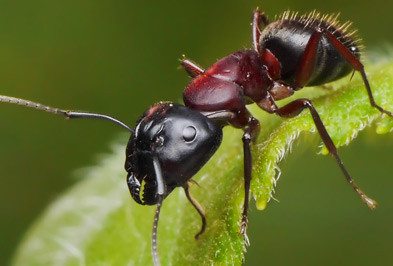Reliable Ant Control: Expert Services to Eliminate Ant Infestations
Reliable Ant Control: Expert Services to Eliminate Ant Infestations
Blog Article
Ecological Influence of Pest Control: Harmonizing Performance With Sustainability
The ecological impact of insect control is a vital problem that requires a delicate equilibrium in between attaining performance in ensuring and handling insects sustainability of our ecosystems. From the usage of hazardous chemicals that leak into our dirt and water to the unexpected effects on non-target varieties, the effects of standard parasite control techniques are far-ranging.
Harmful Chemicals in Pest Control
The utilization of hazardous chemicals in insect control poses significant environmental and health risks that warrant mindful factor to consider and reduction approaches. Pesticides, insecticides, and herbicides are generally made use of to get rid of pests, yet their widespread application can result in unexpected effects. These chemicals can contaminate soil, water resources, and the air, influencing not just the targeted insects but also advantageous insects, wild animals, and humans.

To deal with these dangers, integrated bug management (IPM) methods are being advertised as a more lasting alternative. IPM entails a mix of techniques such as organic control, environment adjustment, and the targeted usage of pesticides as a last option (ant control stalling nc). By embracing a holistic approach to pest control, we can decrease the environmental and health influences connected with damaging chemicals while efficiently taking care of pest populations
Influence On Non-Target Species
Thinking about the unintended effects of insect control approaches, the influence on non-target species is a crucial facet that needs thorough examination. While insect control actions aim to target details bugs, various other organisms in the ecological community may be accidentally impacted. Non-target species, including valuable bugs, birds, animals, and also plants, can suffer straight or indirect harm from chemical applications or biological control approaches.
Chemicals can have lethal or sub-lethal results on non-target varieties. Pesticides made to battle a specific bug bug might hurt pollinators like bees or all-natural predators such as ladybugs. Furthermore, chemical residues can collect in the environment, affecting non-target microorganisms over time. In a similar way, biological control agents, if not species-specific, can pose dangers to unexpected targets, interfering with the ecological equilibrium.
To minimize the influence on non-target varieties, integrated insect administration (IPM) approaches that emphasize a holistic approach to pest control are advised. These techniques focus on using ecologically friendly methods, reducing damage to helpful organisms while efficiently managing pest populaces. Conducting comprehensive risk analyses and checking the results of parasite control initiatives are vital steps in safeguarding non-target varieties and promoting general ecosystem wellness.
Soil and Water Contamination
Unplanned ecological consequences of bug control approaches extend beyond impacting non-target types, with substantial effects for soil and water contamination - ant control services. Pesticides, herbicides, and chemical plant foods used in insect control can leach right into the dirt and infect groundwater, posing a risk to both marine and earthbound communities.
Water contamination is one more crucial issue linked with insect control methods. To reduce soil and water contamination from parasite control tasks, incorporated insect administration strategies that focus on sustainability and lessen chemical inputs are critical.
Air Air Pollution From Pesticide Use
Exposure to airborne pesticides during agricultural applications postures a substantial problem for air contamination control steps. When pesticides are sprayed onto plants, they can volatilize into the air and kind unstable organic substances (VOCs) and other air-borne pollutants. These chemicals can add to the development of ground-level ozone, a major component of smoke that can have destructive impacts on human health and wellness, plant productivity, and general air top quality. Additionally, chemical drift, where pesticides are lugged by the wind to unintended areas, can lead to the contamination of close-by ecosystems and water bodies.

Methods for Lasting Bug Control
In the realm of farming methods, implementing lasting pest control techniques is critical for preserving ecological equilibrium and safeguarding plant returns. Sustainable insect control highlights the use of eco pleasant approaches to take care of parasite populaces properly while decreasing harm to non-target organisms and ecological communities. Integrated Parasite Management (IPM) is a widely adopted approach that incorporates organic, social, physical, and chemical control techniques to accomplish long-lasting insect administration services.
Crop turning and diversity are also reliable methods to disrupt pest life cycles and develop less favorable problems for pests to grow. Eventually, by incorporating these sustainable parasite control methods, farmers can achieve a balance between pest administration effectiveness and ecological stewardship.
Verdict
Finally, the ecological influence of insect control approaches should be see post meticulously considered to stabilize effectiveness with sustainability. Dangerous chemicals used in bug control can lead to soil and water contamination, air contamination, and harm non-target varieties - ant control services. It is critical to implement sustainable bug control strategies to reduce these unfavorable effects on the setting and advertise a much healthier community for future generations
By embracing an alternative technique to pest control, we can decrease the ecological and health impacts associated with damaging chemicals while successfully handling pest populaces.

To alleviate the air contamination triggered by chemical use, it is necessary to adopt incorporated pest administration strategies that prioritize the usage of non-chemical insect control approaches, such as crop turning, all-natural killers, and immune plant varieties. Sustainable parasite control highlights the use of environmentally friendly approaches to handle insect populaces effectively while lessening injury to non-target microorganisms and communities. Integrated Insect Monitoring (IPM) is an extensively taken on approach that integrates biological, cultural, physical, and chemical control techniques to attain lasting parasite management solutions.
Report this page